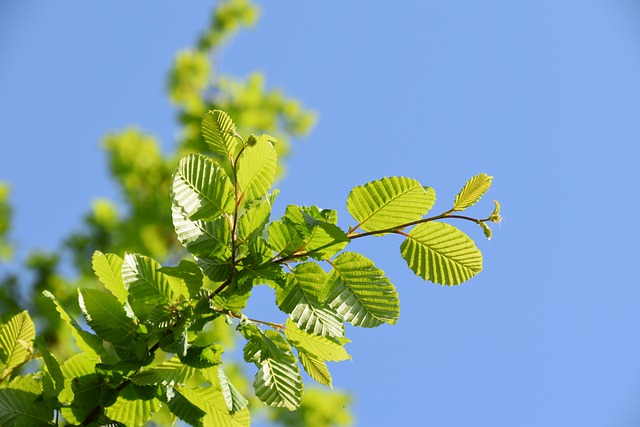
While the terms ‘shrub’ and ‘tree’ are commonly used interchangeably, they’re not the same thing! If you’ve found your way to this blog, you’re likely wondering what exactly sets trees and shrubs apart. Most gardeners will tell you that they know the difference between a tree and a shrub, but it's not always easy to put into words. Shrubs and trees are very similar in a lot of ways, but they also have some distinct differences that we're going to explore today.
To best answer the question ‘what is the difference between shrubs and trees’, lets first identify exactly what a shrub and what a tree is, then we can look into what makes them similar and different!
What is a shrub?
By definition, a shrub is a small-to-medium-sized perennial woody plant with woody stems above ground. In comparison to trees, shrubs tend to have lots of perennial stems that can grow upright or lay close to the ground. Shrubs are less than 4 metres high and usually boast denser, thicker foliage.
What is a tree?
A tree is a perennial plant with an elongated stem or trunk, usually supporting branches or leaves. In some more narrow definitions, a perennial plant can only be defined as a tree if it has distinct secondary growth, is usable as lumber, or is above a specified height. If you really want to know the technical differences between trees and shrubs, you have to look more closely at the physiological characteristics of trees.
Trees are tall plants that have woody tissue on their exterior. The trunk is not made of living tissue, in fact, its main purpose is to support the weight of the tree and the leaves above. Each year, trees acquire two new rings which make it easy to determine the age of a well-established tree, if and when it's cut down.
Similarities between trees and shrubs
While trees and shrubs aren’t the same thing, it’s easy to see where people get their wires crossed. It's true that trees and shrubs are both woody plants with leaves, flowers, sometimes fruits or berries. Some species of plants can actually be grown as shrubs or trees depending on how you prune them.
There are even some plants that blur the lines between tree and shrub so much that they've been charmingly named 'trubs'.
Difference between shrubs and trees
When you consider how a tree is different from a shrub, the first thing you'll notice is a difference in size. Shrubs tend to be smaller and rounder in shape, with lots of densely-packed stems coming off a main central trunk.
In comparison, trees are generally much larger and boast a thicker main trunk and fewer stems.
How do trees and shrubs fit into our gardens?
Shrubs are often found around the borders of gardens, providing cover for birds to hide and framing your lawn, patio, or deck. They aren't usually the main attraction but they're ideal for filling blank space in your garden design.
Trees, on the other hand, tend to be a more prominent feature in the garden, often bearing fruits. We tend to consider trees as a more permanent feature of our gardens while shrubs have a tendency of becoming unruly and disrupting the growth of other plants by shadowing your garden borders. If you find yourself wishing you could get rid of your garden shrubs, we do have a solution for you!
Our weed, shrub, and bramble removal services
Garden clearances can be tricky, but if you're ready for a fresh start, our experts can do a lot of the hard work for you. Get in touch and we can attend your property, assess your shrubs and give you a quote for removal.
Weed, Shrub and Bramble Clearance >
If you have any questions, feel free to give us a call on 029 2039 7554. We can't wait to help you rid your garden of unwanted shrubs.
